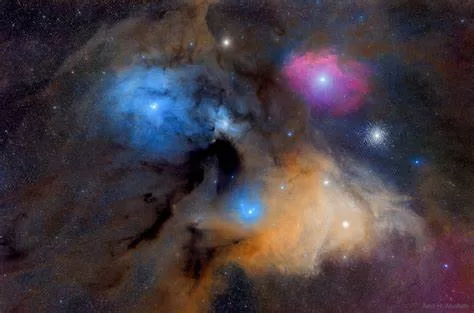Astronomical Definition & Meaning
An astronomical object is any celestial body or phenomenon that exists in the observable universe. This includes objects such as stars, planets, galaxies, nebulae, and celestial events such as supernovae and gamma ray bursts.
One of the most well-known astronomical objects is the sun, which is a star located at the center of the solar system. The sun is the primary source of light and heat for the Earth, and is essential for life on the planet. Other stars in the universe are much larger and more massive than the sun, and can be millions or billions of times more luminous.
Planets are celestial bodies that orbit around stars, and are typically much smaller and less massive than stars. The solar system, which is the collection of celestial bodies that orbit around the sun, contains eight planets: Mercury, Venus, Earth, Mars, Jupiter, Saturn, Uranus, and Neptune. In recent years, scientists have also discovered a number of exoplanets, which are planets that orbit around stars outside of the solar system.
Galaxies are vast collections of stars, gas, dust, and dark matter, held together by gravitational forces. The Milky Way, which is the galaxy that contains the solar system, is home to billions of stars, including the sun. There are millions of other galaxies in the observable universe, each with their own unique characteristics and properties.
Nebulae are clouds of gas and dust that exist in the space between stars. They can be either diffuse, meaning they are spread out over a large area, or concentrated into a small, compact region. There are many different types of nebulae, including emission nebulae, which are clouds of ionized gas that emit light, and reflection nebulae, which are clouds of dust that reflect the light of nearby stars.
Celestial events such as supernovae and gamma ray bursts are extremely energetic phenomena that occur in the universe. Supernovae are explosive events that occur when a star collapses and explodes, releasing a massive amount of energy. Gamma ray bursts are extremely luminous bursts of gamma rays that are emitted when a star collapses or when two neutron stars collide. These events are among the most powerful and destructive phenomena in the universe, and can have significant impacts on the surrounding celestial bodies.
Astronomy, which is the study of celestial objects and phenomena, is a field that has undergone tremendous advances in recent years due to advances in technology and our understanding of the universe. With the help of telescopes and other instruments, astronomers are able to study the properties of astronomical objects and learn more about the nature and evolution of the universe. In addition, new discoveries in astronomy have the potential to revolutionize our understanding of the universe and our place within it.





